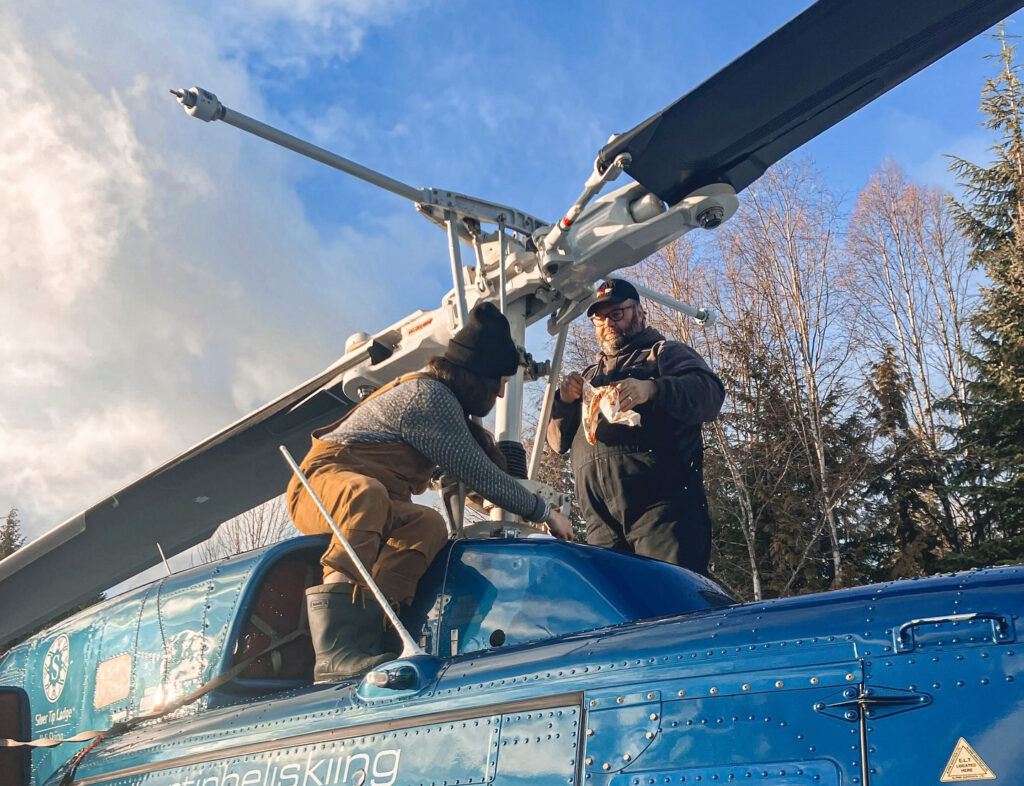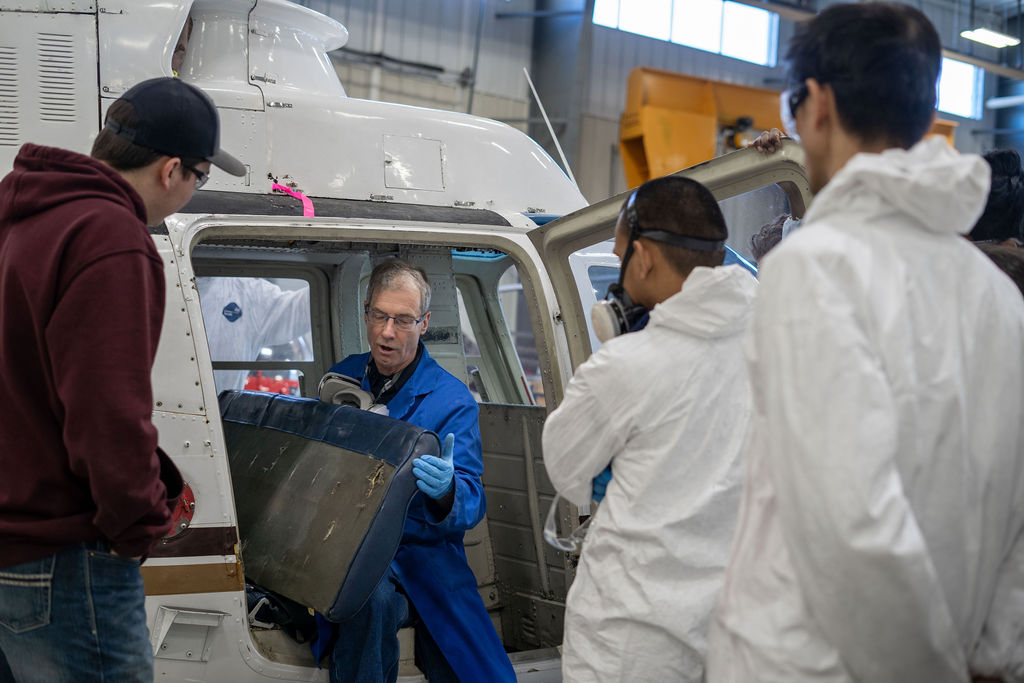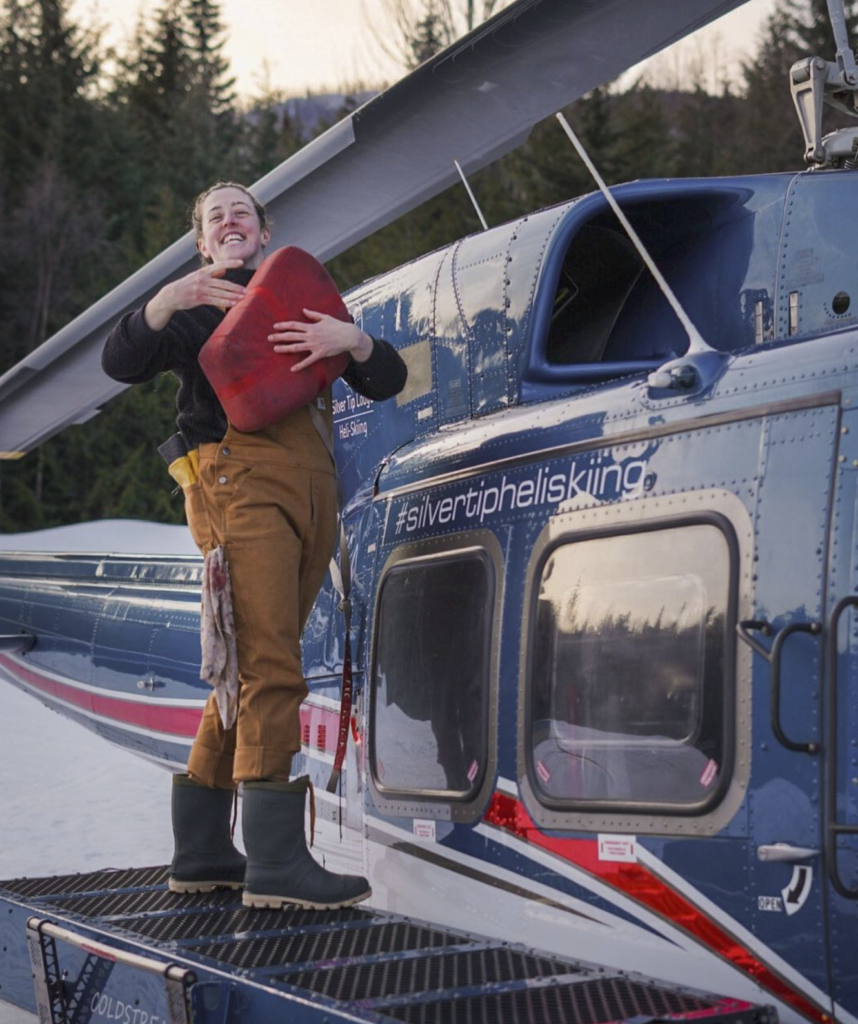
In the hangars of Northern Lights College, a new generation of aviation engineers is taking shape. Among them is Trish Bromley, who’s found her calling in Aviation Engineering. Alongside her is a diverse group of students, each bringing unique backgrounds and fresh perspectives to the programme, from recent high school graduates to seasoned professionals embarking on second careers.
Together, they represent the future of aviation—curious, dedicated, and eager to master the craft. For Trish, her path to this point has been anything but conventional. Guided by mentorship and driven by a passion for mechanics, she embodies the spirit of collaboration and curiosity that defines the next generation entering the aviation industry.
Transitioning from international mountain bike competitions to aviation might seem like a leap, but for Trish, it was a natural progression. “Tinkering on my bike was always about finding that perfect balance—better handling, sharper responsiveness. I loved the immediate feedback of making something work better,” she explains.
Her pivot to aviation was sparked during a stint at a heli-ski lodge, where an engineer patiently fielded her endless questions. “He joked about taking me on as an apprentice, but it planted a seed,” she recalls. It was the encouragement she needed to turn curiosity into a career-defining shift.
This transformation wasn’t without challenges. Just as Trish began pursuing opportunities, her storage locker burned down, taking most of her belongings with it. “I was thinking, is this a sign that I shouldn’t be going down this path? But when I found out I’d won the scholarship from Camber, it was such an affirmation. It gave me the push I needed to keep going. It meant everything to me.”
When it comes to aviation engineering, even the smallest adjustments can make significant differences—a fact that fuels Trish’s enthusiasm. Whether she’s rewiring radios, inspecting turbine wear, or methodically dismantling engines, she finds joy in the intricacies of the craft. “Balancing a rotor head or making micro-adjustments—it’s amazing how these tiny tweaks can transform performance,” she says.
Her fascination with detail extends beyond the tools. From the properties of elastomeric bearings to the interplay of materials under extreme conditions, Trish delights in the science behind the mechanics. “Working on turbines, you’re dealing with clearances so small that even a tiny bit of wear can affect performance or safety. It’s incredible to see how everything fits together so precisely.”
Now in her third term, Trish is relishing the hands-on nature of her studies. “A year ago, I was battling imposter syndrome, but recently we split open a crankcase in the engine shop. I looked at my partner and said, ‘We’re really doing this!’” she recalls with obvious enthusiasm.
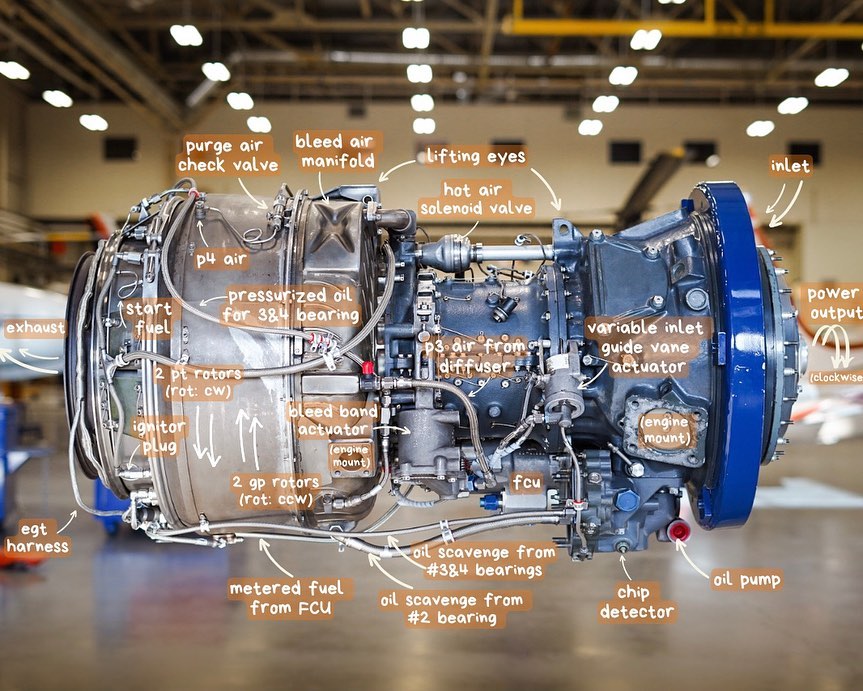
Her classroom is a hub of diversity, with students from all walks of life contributing their unique perspectives. “We have people from all over—one of my classmates is from Papua New Guinea with a background in yacht engineering, while others are fresh out of high school. It’s amazing to see all these perspectives come together in the same hangar,” she says.
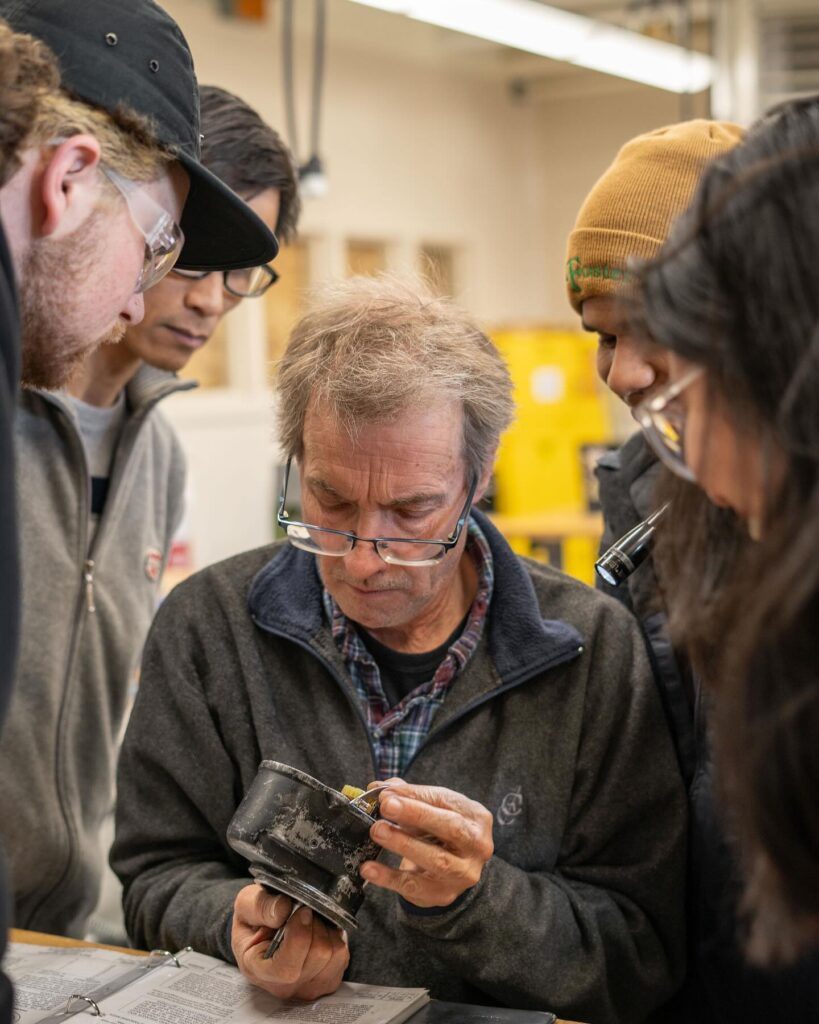
Mentorship has been a guiding thread in Trish’s journey. From organising mechanics nights in Whistler to learning from her instructors at Northern Lights, she has witnessed how encouragement can unlock potential. “It’s amazing what happens when you put tools into someone’s hands,” she says. “It’s not just about the technical skills; it’s about confidence.”
This ethos aligns with Camber Aviation Management’s commitment to fostering new talent. Through the Sea-to-Sky Aircraft Maintenance Engineering (AME) Scholarship, Camber provides financial and mentorship support to aspiring engineers like Trish. “It’s not just about offering money,” explains CEO Tom Chatfield. “We want to guide and nurture the next generation, ensuring they have the tools and confidence to excel in this field.”
Chatfield is clear about the stakes. “The private aviation sector needs new ideas, new perspectives, and new blood,” he says. “It’s how we’ll stay relevant and continue to move the needle forward. I challenge others in the industry to join us in creating opportunities for young people to explore this incredible field. It’s not just an investment in their future—it’s an investment in ours.”
Trish credits curiosity as an essential trait for success in aviation engineering. “Some of the best advice I’ve got is to stay curious. Troubleshooting in aviation is like solving a puzzle—every piece you examine opens up new questions and possibilities,” she explains.
Her passion for encouraging others is unmistakable. During her time in Whistler, she organised mechanics nights to help women build confidence in using tools. “It’s not just about learning the skills—it’s about feeling empowered to try,” she says. That same spirit carries through to her work today, as she captures and shares images of women in aviation to inspire future generations. “When I was looking into programmes, I didn’t see many women in the promotional photos. I’ve tried to change that—because if you can see it, you can be it.”
While Trish remains focused on her immediate goal of completing her apprenticeship and earning her Aircraft Maintenance Engineer licence, she is equally excited about the opportunities ahead. “Every term, I discover something new that fascinates me,” she says.
Her path is as much about personal growth as it is about technical mastery. “I used to be so goal-oriented, but now I’m enjoying the process and letting it unfold,” she reflects. Whether troubleshooting an engine or sparking conversations about the future of aviation, Trish embodies the spirit of a lifelong learner, ready to embrace whatever comes next.
Trish Bromley’s transition into aviation engineering is a reminder that curiosity, aptitude, and collaboration can open doors to remarkable opportunities. At Northern Lights College, she is proving that success comes not just from technical skill but also from a genuine love for the craft and a willingness to uplift others.
As the aviation industry looks to the future, stories like Trish’s highlight the importance of mentorship, innovation, and a shared commitment to progress. Her journey is not just an inspiration; it’s a call to action, inviting others to reimagine what’s possible in the skies—and beyond.
